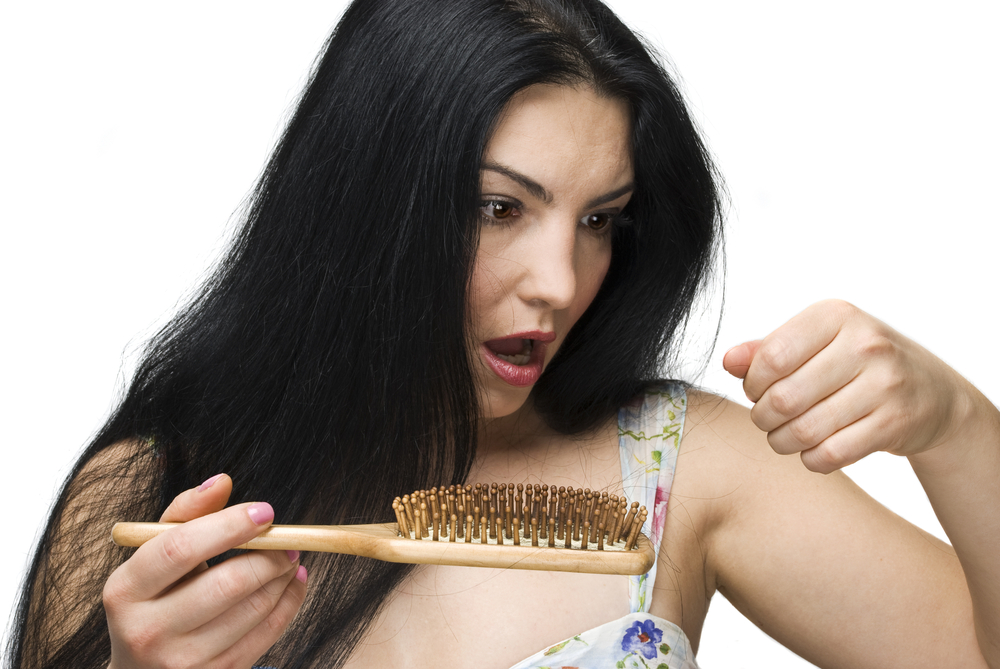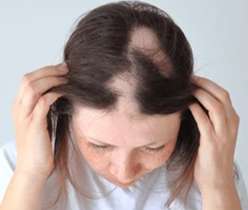Forget the hair diseases, even too much stress can cause hair loss patterns and even leave you bald. Take an effective hair loss treatment at the earliest before it’s too late to save your natural hair.
Hair grows and falls on its own as a natural process. But, if your hair falls and you don’t gain new ones then there is a problem to think about. Those who notice sudden or patchy hair loss or unusual hair fall when combing or washing hair are advised to consult a doctor. A sudden thinning hair and hair loss pattern can be due to an underlying medical condition that requires medical attention.
Stress and hair fall:
Every hair loss is not because of a disease; your mental or emotional condition also plays a role. It’s quite possible that you lose hair due to stress and mental tension. In scientific term, this condition is called telogen effluvium in which you lose more hair but regain a little, resulting thinning hair and hair loss. Sometimes, your hair pattern mirrors your mental condition. In deep stress, you can lose the natural shine and strength of your hair.
Also Read:The Physical Side of Stress
The good news is that hair loss due to stress is not a permanent condition, and when you are fit and out of psychological stress you can regain hair.
Why stress causes hair fall:
Experts say it all depends on what type of stress you undergo and what is its magnitude that causes hair fall.
If you are under a tremendous pressure of a heavy workload or office work then it may not cause hair thinning and hair loss, but if you’re suffering from a psychological trauma then it can affect the health of your hair more severely. Everyday stress is normal in its impact, whereas deep stress or any psychological injury can change your appetite that further causes hormonal changes in the body. Therefore, it can increase the risk of weak hair follicles and hair fall.
Other than telogen effluvium, there are two more conditions – Alopecia areata and Trichotillomania, which are invoked by stress and affect hair density. In alopecia areata, your immune system is disturbed to weaken hair follicles thereby causing hair fall out in a large number.
Trichotillomania is a bit different condition from other two, as it refers to a condition of irritation in which you pull your hair forcefully. Repeated pulling and snatching of hair may affect the condition of hair follicles. Sometimes an ineffective hair loss treatment can invite this condition. It’s more often a result of deep stress, depression, anxiety, or social detachment.
Visible causes of hair loss in stress
Stress leads some types of psychological changes in your body that could be a reason of hair thinning and weak follicles. There are some obvious health conditions that can raise a hair problem because of changes in psychological status. Experts count these conditions as:
- Poor nutrition or low-calorie diet
- Serious health conditions
- Intense and long-term medications
- Infections
- Lower estrogen levels
- Major injury
When to consult a doctor:
Since every hair loss doesn’t happen due to stress, your doctor can exactly tell you if there is any link between stress and hair loss. It’s also necessary to understand that if you are experiencing persistent hair fall, the stress can worsen the condition.
Remember that most instances of hair fall do not require medication attention, so if your hair loss is not due to stress then take the hair loss treatment for other underlying problem.
A hair loss due to hypothyroidism or autoimmune diseases such as lupus and polycystic ovary syndrome (PCOS) requires immediate medical attention to protect your hair.
Treatment of stress-related hair loss
Once it’s confirmed that you have no other diseases or health conditions but stress for causing hair loss, then take some necessary steps to ease your emotional conditions. Experts suggest some effective remedies to get rid of stress, such as:
Take sufficient sleep
If you are not getting enough sleep then you may experience physical and mental stress. The persistence of sleep issues can affect your performance and diet, which can become a cause of stress and anxiety.
Also Read:The Health Benefits of Water
It’s advised to take 6-8 hours of peaceful and comfortable sleep every day. Also, try to ease your mind before going heading to sleep and avoid any matter that can disturb your mind in the night.
Take healthy diet
A healthy diet is essential to relieve stress and strengthen hair follicles. Make a schedule to take at least three healthy meals a day. Try to avoid fried, processed, sugary and junk foods that may disturb the hormonal balance. Make fruits a regular part of your meal. Moreover, increase the intake of certain vitamins and minerals that are helpful to find healthy hair growth. Some particular food elements that you must take include vitamins A, C and E, potassium, B vitamins, zinc, selenium, magnesium and omega-3 fatty acids.
Go for regular exercise
Physical exercise proves to be an excellent stress-buster. You can do some sweating workout to release endorphins that would make your feel calm and relaxed. In addition, exercise can increase blood circulation that ultimately helps your hair loss treatment. You can take up cycling, swimming, dancing, yoga and cardio exercises to reduce stress.
Other ways to reduce stress
There are some more ways that can help you to ease mental tension, such as:
- Psychological counseling
- Family attachment
- Sports
- Meditation
- Music and book reading
- Morning walk



